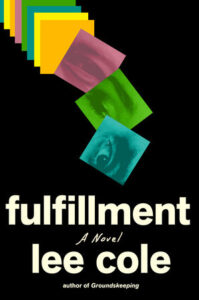
What Does It Mean To Be a Working Class Writer at Iowa Writers’ Workshop?
Lee Cole on the Absence of Working Class Perspectives in our Literary Institutions
When I arrived at the Iowa Writers’ Workshop, I was sure there’d been some mistake. After all, it was the most selective MFA program in the country, and the odds of acceptance were exceedingly low. And yet, there I was at the “Welcome Barbecue,” standing on the lawn of that beautiful green and white Victorian where the workshop was housed, eating potato salad from a paper plate and worrying obsessively that someone would detect my Kentucky accent.
I’m sure most of the writers in my cohort went through a bout of Imposter Syndrome. The first month was a whirlwind of namedropping, ass-kissing, and virtue signaling. The posturing never went away, but it died down to a simmer, and roundabout October, everyone seemed to exhale collectively, no longer feeling they had something to prove. I, on the other hand, was still chewing antacids before every class, fixating on minor social faux pas, and believing, irrationally, that I would be kicked out for some reason.
I’d been told that my Imposter Syndrome would pass with time, but the symptoms had only intensified. It was only toward the beginning of my second semester that I began to understand why: if Imposter Syndrome is the belief that you don’t belong, the cure is to realize that you’re not alone—that the others are like you, that they come from a similar background and share your values, that you have common points of reference. We shared many things—a love of books and language foremost among them. But most of my peers had grown up in cities on one of the coasts and had gone to elite schools. Their parents were highly educated professionals of some kind. They found, in each other, a validating mirror of their lives. I have to imagine they thought, If all these people who are like me are here, then I must belong here, too.
If Imposter Syndrome is the belief that you don’t belong, the cure is to realize that you’re not alone—that the others are like you, that they come from a similar background and share your values, that you have common points of reference.
By contrast, there were fewer people like me—people who had grown up in rural places or small towns, who were first generation college students, who’d gone to state schools for college, or who had spent the years after college working in a way that involved physical labor. Before their arrival, my classmates had been editorial assistants and reporters and interns for major publications. I had been working nights as a package handler at a UPS warehouse for three years, heaving iPhones and Zabar’s coffee and countless frosty boxes of Omaha Steaks onto a conveyor belt. In my first workshop, five of the eleven students were Ivy League alumni. Another three were graduates of elite private colleges. Only three, including myself, had gone to public state schools. The more I got to know my classmates, the more I became sure that I was a mistake. If all these people who are not like me are here, then I must not belong.
Unsurprisingly, socioeconomic class seldom came up in conversation. Sitting over pints after workshop in the drafty shack known as the Foxhead Tavern, the topics of race and gender and sexual orientation came up often, as did trauma and privilege and language-as-violence. But it was almost gauche to mention money or education, especially to imply that either may have conferred advantages.
To be clear, I don’t blame the Workshop for this state of affairs. Anxieties aside, when I look back on my time there, I feel unreasonably lucky to have met the teachers and writers I admire so much, and to have been given a chance to attend in the first place. The problem I’m describing is much bigger than a single MFA program, even one as emblematic as Iowa. While institutions—MFA programs, lit mags, publishing houses—have done much to include and elevate underrepresented groups on the basis of race, gender, or sexual orientation, they’ve done far less to include and elevate those from underrepresented class backgrounds.
The causes are complex, but I think two main facets deserve the most attention. One is that working class people from the American hinterlands simply lack the time, resources, and networks to gamble on a vocation with so little security. The other is that readers of literary books are more likely to come from highly educated professional backgrounds, and they seek out fiction that reflects their experiences and values, creating a cycle of class reproduction.
While institutions—MFA programs, lit mags, publishing houses—have done much to include and elevate underrepresented groups on the basis of race, gender, or sexual orientation, they’ve done far less to include and elevate those from underrepresented class backgrounds.
The exact meaning of “working class” in this context is, admittedly, somewhat hazy. For one thing, even my affluent classmates were still in the position of renting out their labor in a precarious market, and education is not always a great proxy for class. You can grow up in abject poverty and still fight your way up to Harvard. What I’m describing is more like the distinction between uncredentialed low-status workers and the Professional-Managerial-Class, to use Barbara Ehrenreich’s term. Robert Reich calls the latter class “symbolic analysts,” while Thomas Piketty prefers “the Brahmin Left.” In any case, these are Americans who are well-educated, well-read, and well-heeled, who come from the centers of cultural production. And then there’s the former group, outnumbering them greatly—Starbucks baristas and Uber drivers, warehouse workers and nursing home aides. It’s the lives and experiences, as well as the resentments, of this former group that I tried to write about in my second novel, and I think the absence of that perspective in our literary institutions raises important questions.
Does it matter, for example, that Lee & Low’s Diversity Baseline Survey—a widely used benchmark in the publishing industry—omits class altogether (along with other metrics that might be useful, like education level and status as a first-generation college student)? Is it worth noting that of the twenty most recent National Book Award winners in Fiction, a staggering fourteen have degrees from Ivy League schools (sixty or seventy times the percentage of Ivy graduates in the general population)? Your answer will probably depend, in some measure, on whether you believe that American meritocracy is still legitimate. If you do, then the system is working as intended, funneling the best and brightest into our most prestigious institutions. But if, like me, you worry about elite overrepresentation, then it might be worth asking how working-class writers can ever break through.
But if, like me, you worry about elite overrepresentation, then it might be worth asking how working-class writers can ever break through.
One answer is to treat class as yet another identity category. The problem is that class is not, at least solely, an identity; it’s a relationship within a hierarchy. In other words, it would be strange for me to “identify” with my class, because to do so would be to tacitly endorse the hierarchy itself. I’d like to live in a society without class, insofar as that’s possible—not a society where class is reified as a cherished identity and treated merely as a problem of representation.
A real solution would be bottom-up, I think, rather than top-down, which is why it’s not really the responsibility of MFA programs. It would involve an overhaul of arts funding, especially in underserved regions, and a reimagining of the way libraries and public schools are funded. A burgeoning writer’s zip code should not determine the quality of her education, but if she’s born in Greenwich, Connecticut instead of, say, western Kentucky, her prospects will be considerably altered.
My hope is that more working-class writers—regardless of race, gender, or orientation—find their way to publication, if only because their experiences are far more prevalent than the experiences of the affluent. People sometimes ask me how I made it to where I am in my own career, the implication being that it’s remarkable to hail from flyover country and manage to publish a book. But my background is decidedly unremarkable—and that’s the whole point. I never knew deprivation or poverty, but my life was modest and so were my expectations, and I did what so many people do: I took jobs I hated to get by, and I dreamed of escape.
Going to an Ivy League school, pursuing one’s artistic passions, working in the upper echelons of media—these are the unusual trajectories, the narratives so seldom afforded to most people. Until some drastic change disrupts the literary pipeline, writers like me, who find themselves anxious and befuddled in a program far from home, will go on seeing themselves as anomalies. And they won’t be wrong.
_______________________

Lee Cole’s Fulfillment is available now from Knopf.
Lee Cole
Lee Cole was born and grew up in rural Kentucky. He is the author of the novels Groundskeeping and Fulfillment. A graduate of the Iowa Writers’ Workshop, he now lives in Philadelphia.



















